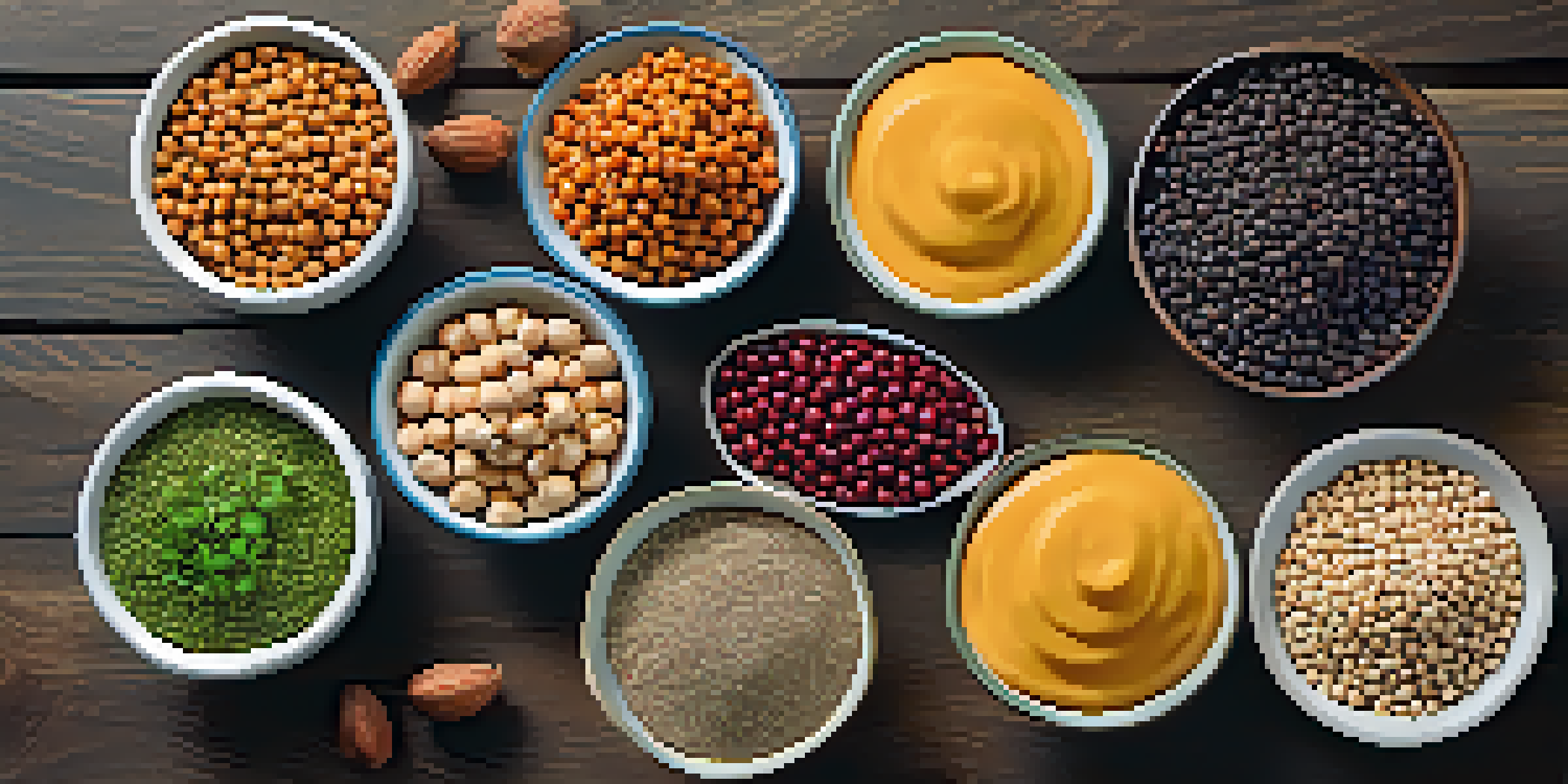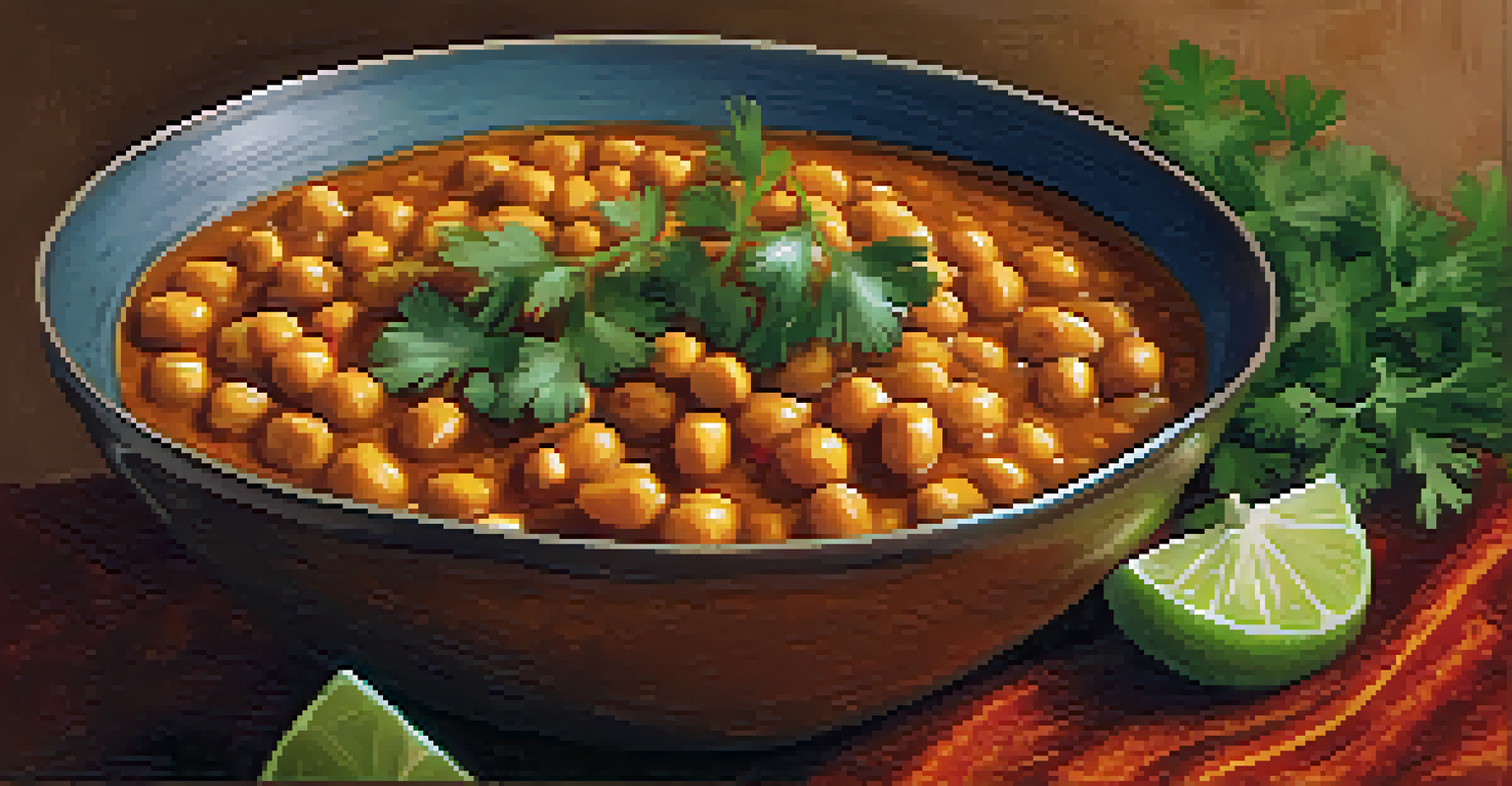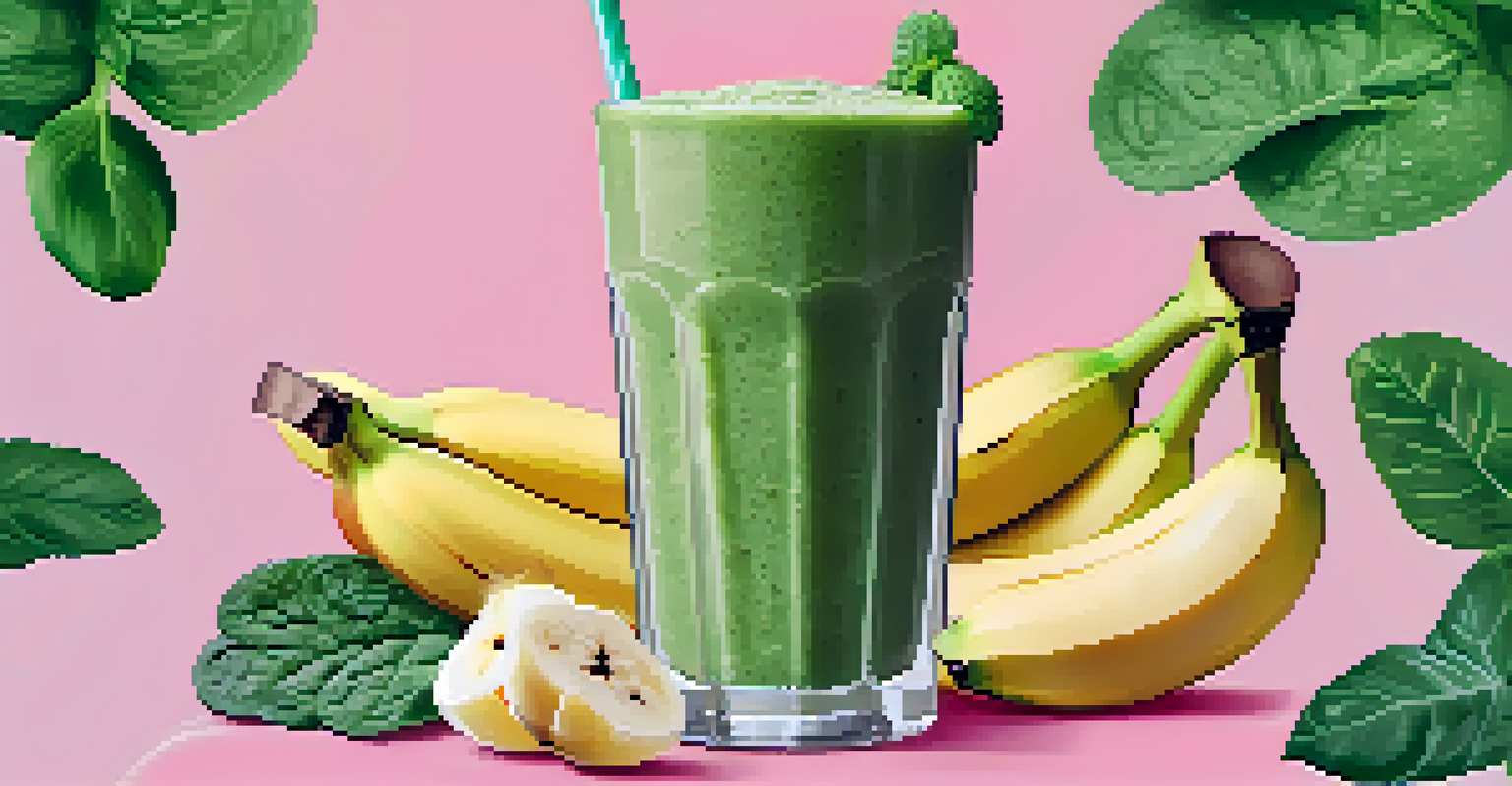Understanding Plant-Based Proteins for Your Diet

What Are Plant-Based Proteins and Their Benefits?
Plant-based proteins are derived from plants, including legumes, nuts, seeds, and whole grains. Unlike animal proteins, they often come with additional nutrients like fiber, vitamins, and minerals. This makes them not only a protein source but also a way to boost overall health.
Let food be thy medicine and medicine be thy food.
One of the biggest advantages of incorporating plant-based proteins into your diet is their potential to reduce the risk of chronic diseases. Studies have shown that diets rich in plant proteins can lower cholesterol levels and improve heart health. Plus, they can support weight management due to their lower calorie density compared to animal proteins.
Additionally, plant-based proteins are more environmentally sustainable. Producing plant foods generally requires fewer resources and generates less greenhouse gas emissions than raising livestock. So, choosing plant-based options can be a delicious way to support both your health and the planet.
Top Sources of Plant-Based Proteins to Try
When it comes to plant-based protein sources, the variety is impressive. Some top contenders include lentils, chickpeas, quinoa, and various beans. For those who enjoy snacking, nuts and seeds like almonds, chia seeds, and hemp seeds can easily be added to meals or eaten alone.

To put it simply, adding these proteins to your diet can be as easy as tossing some beans into a salad or blending a scoop of nut butter into your morning smoothie. Quinoa, often considered a superfood, is particularly versatile and can be used in salads, side dishes, or even breakfast bowls.
Benefits of Plant-Based Proteins
Plant-based proteins offer health benefits, including reduced chronic disease risk and improved heart health.
Don't forget about tofu and tempeh, which are excellent plant-based protein options for those who enjoy cooking. These soy-based products are incredibly adaptable, soaking up flavors from spices and marinades, making them a fantastic addition to stir-fries, soups, or grilled dishes.
Combining Plant Proteins for Complete Nutrition
One common misconception about plant-based proteins is that they don't offer complete proteins, meaning they lack one or more essential amino acids. However, by combining different sources, you can easily create complete protein profiles. For example, pairing rice with beans or hummus with whole-grain pita can do the trick.
Eating plants is a great way to ensure that you can eat your way to better health and a better planet.
This practice of combining proteins is often referred to as 'protein complementation.' It's a simple way to ensure you're getting all the essential amino acids your body needs for muscle repair and overall health. Think of it like creating a delicious, balanced meal that fulfills your nutritional needs.
By being mindful of your combinations, you can enjoy a diverse and satisfying diet. This not only keeps your meals interesting but also ensures you're nourishing your body in the best way possible.
How to Incorporate Plant Proteins into Your Meals
Incorporating plant-based proteins into your meals can be simple and enjoyable. Start by swapping out some of your regular protein sources for plant-based options. For instance, try using lentils in place of ground meat in tacos or spaghetti sauce to create a hearty and nutritious dish.
Another easy way to add more plant proteins is by experimenting with meatless meals. Try dedicating one or two days a week to plant-based eating, often referred to as 'Meatless Mondays.' This not only introduces variety to your diet but can also inspire creativity in the kitchen.
Top Plant Protein Sources
Incorporating lentils, chickpeas, and quinoa into your meals can provide a diverse range of plant-based proteins.
Lastly, consider meal prepping with plant proteins in mind. Cooking a big batch of quinoa or a pot of beans can save time and make it easier to include these nutritious options in your meals throughout the week.
Addressing Concerns About Plant Proteins
Some people worry that plant-based proteins may not provide enough protein for their dietary needs. However, a well-planned plant-based diet can meet and even exceed daily protein requirements. By being mindful of portion sizes and including a variety of plant proteins, you can easily achieve your goals.
Another concern is the digestibility of certain plant proteins. While some may find legumes challenging to digest, soaking or sprouting beans can enhance their digestibility and nutrient absorption. Cooking them thoroughly can also make a significant difference.
Ultimately, it’s about finding what works for you. If you're transitioning to more plant-based options, listen to your body and adjust your choices based on how you feel, ensuring you maintain balance and satisfaction in your meals.
The Environmental Impact of Choosing Plant Proteins
As we consider our protein sources, it's essential to think about their environmental impact. Plant-based proteins typically require less water and land compared to animal proteins, making them a more sustainable choice. By opting for plants, you’re not just nourishing your body but also contributing to a healthier planet.
Research indicates that shifting towards a more plant-based diet can significantly reduce your carbon footprint. For example, producing a pound of beef emits far more greenhouse gases than a pound of lentils. Making small changes in your protein sources can lead to more significant environmental benefits.
Environmental Impact Matters
Choosing plant proteins contributes to sustainability by requiring fewer resources and reducing greenhouse gas emissions.
This doesn’t mean you need to eliminate animal proteins entirely. Instead, consider incorporating more plant-based meals into your routine. This balance allows you to enjoy a variety of foods while being mindful of your ecological footprint.
Delicious Plant-Based Recipes to Try
If you’re looking for inspiration, there are countless delicious plant-based recipes to explore. Start with a hearty chickpea curry, packed with spices and flavor, or a vibrant quinoa salad filled with fresh vegetables. Both dishes are not only nutritious but also easy to prepare.
Smoothies are another fantastic way to incorporate plant proteins. Blend spinach, banana, and a scoop of plant-based protein powder for a refreshing and energizing drink. You can even sneak in some nut butter for added creaminess and flavor.

Lastly, don’t overlook the joy of baking with plant-based ingredients. You can create protein-rich muffins using almond flour or banana bread with added chia seeds. These tasty treats satisfy your sweet tooth while contributing to your daily protein intake.